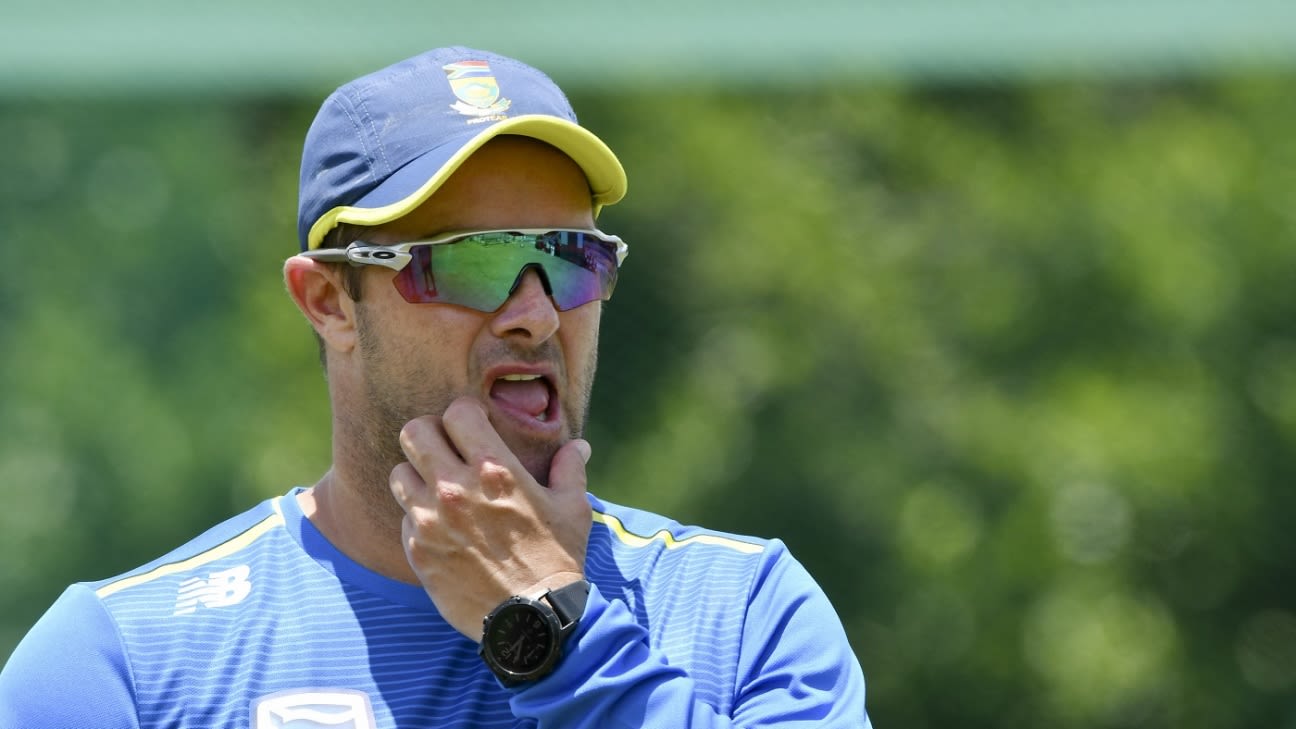In a statement issued on Tuesday morning, CSA confirmed that Adams’ announcement on Sunday that he would not testify reiterated his initial statement that his testimony at the SJN was about the “overall culture,” of the national team in the early 2000s and that he did not signal out any particular players. In his oral testimony, Adams recounted the anecdote which led to him being given the nickname “b**** s****” and it was the ombudsman’s assistant Fumisa Ngqele who then asked him, “When Mark Boucher called you “b**** s***, did you address him personally?” Adams responded: “No well, I never addressed them personally. Mark was probably just one of the guys that did all that.” Adams’ written statement makes no mention of Boucher.
On the matter of Nkwe, the charge sheet against Boucher claimed that he had not provided “roles and responsibilities” or “meaningful key-performance indicators,” for him, did not define his role or any development plans for him and thus, “allegedly treated Mr Nkwe in a manner unbecoming of a leader in your position.” Nkwe’s unwillingness to testify meant CSA could not pursue this charge either.
There was no mention of why CSA could not sustain the charge around the handling of the BLM movement other than a comment that they had “engaged with various other potential witnesses over the last month and concluded that none of the three charges were sustainable.” While Boucher had intended to call several current players to testify on his behalf, ESPNcricinfo understands that CSA could not secure the same, and, having noted the outcome of Smith’s arbitration, CSA felt they would not be able to make the charges against Boucher stand.
With Smith’s case concluded, and his tenure as DOC ended, and the withdrawing of the charges against Boucher, this brings an end to CSA’s battles with two of the most influential men in the country’s cricket, and they are eager to take a bigger picture view of their anti-racist process over the last 18 months.
“The SJN process was never only or even mainly about the conduct of individuals. More fundamentally, it was about providing a platform for persons involved in cricket to share their personal experiences of racial and gender discrimination and to allow for a careful consideration of the systemic measures necessary to redress these issues going forward for the future,” Lawson Naidoo, CSA’s board chair said. “The Board will in the near future announce further systemic initiatives in this regard. The systemic learnings from the SJN process will provide valuable input into the values, behaviours, culture and strategy of Cricket in South Africa going forward and we thank all participants for their contributions in this regard.”
Boucher welcomed the decision and committed himself to the national team for the remainder of his contract, which runs to the end of the 2023 World Cup.
“The allegations of racism which were levelled against me were unjustified and have caused me considerable hurt and anguish,” he said, in a separate statement. “The last few months have been extremely difficult to endure for me and my family. I am glad that the process has finally come to an end and that CSA has accepted that the charges against me are unsustainable. I consider that the matter is now finalised and closed and I do not intend on making further statements on this matter. I look forward to continuing to focus on my job and to taking the Proteas men’s team to even greater heights.”
Boucher continued to acknowledge the insensitivity of team culture in his playing days and maintain that the environment in the current squad is healthy.
“I stand by my apology to Paul given during the SJN process for the hurt he felt during his time as a Proteas player. As I stated in my affidavit to the SJN process, some of the things that were said and done in those days were totally inappropriate and unacceptable and in retrospect, understandably offensive,” he said. “I am proud to now be part of a team culture that is inclusive and whose objective is to be respectful to every person.”
Firdose Moonda is ESPNcricinfo’s South Africa correspondent
